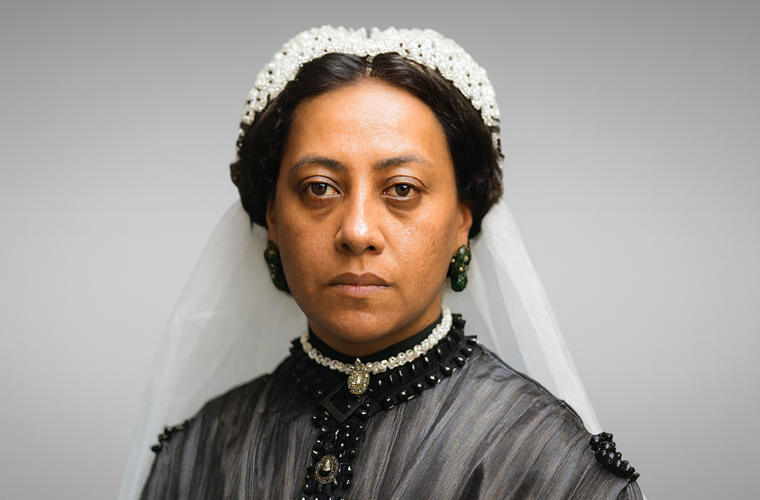A wealthy 19th-century figure who aided enslaved people in escaping via a covert network.
Mary Ellen Pleasant (1814–1904), a formidable African-American entrepreneur, abolitionist, and activist, led a life marked by extraordinary resilience and a steadfast commitment to justice. Born into the brutal confines of slavery in Georgia, she defied the oppressive constraints of her early years to secure her freedom and carve out a legacy that would resonate far beyond her lifetime. Her journey took her to San Francisco during the frenetic California Gold Rush of the 1840s and 1850s, a period of opportunity and upheaval that she navigated with unparalleled ingenuity.
In San Francisco, Pleasant emerged as a prominent and influential figure, leveraging her sharp business acumen to build a substantial fortune. She established herself as a savvy entrepreneur through a variety of ventures, including boarding houses that catered to the city’s burgeoning population of miners, merchants, and adventurers. These establishments were more than mere businesses; they served as hubs of community and information, where Pleasant’s charisma and strategic mind allowed her to forge connections with both the powerful and the marginalized. Beyond boarding houses, she operated restaurants and invested in real estate, capitalizing on the economic boom of the Gold Rush to amass wealth that was rare for any woman of her time, let alone an African-American woman emerging from slavery.
Pleasant’s financial success was not an end in itself but a means to fuel her activism. A fierce abolitionist, she funneled her resources into supporting the Underground Railroad, aiding fugitive slaves in their perilous journeys to freedom. Her home in San Francisco became a haven for those escaping bondage, offering shelter, resources, and connections to safer territories. Her strategic alliances with abolitionist networks extended her influence, making her a key figure in the fight to dismantle slavery. Her wealth also enabled her to fund legal efforts and provide support to those in need, ensuring that her impact reached far beyond her immediate community.
Her activism extended into the courtroom, where she challenged the systemic racism embedded in American society. In the 1860s, Pleasant was a central figure in a landmark legal battle against the North Beach and Mission Railroad Company in San Francisco, which had denied her and other African-Americans access to public streetcars. The case, Pleasant v. North Beach and Mission Railroad Company (1866), was a bold stand against racial segregation in public transportation, predating later civil rights victories, such as the desegregation of streetcars in other cities. Though the case did not immediately overturn discriminatory practices, it brought national attention to the issue and cemented Pleasant’s reputation as a fearless advocate for equality. She also supported other legal battles, including efforts to secure voting rights and challenge discriminatory laws, aligning herself with the broader civil rights movement of the era.
Despite her accomplishments, Pleasant faced relentless opposition. As a Black woman wielding economic power and influence in a deeply prejudiced society, she encountered both racial and gender-based discrimination. Her success made her a target for scrutiny and slander; she was often vilified in the press, with some labeling her a manipulator or worse, perpetuating stereotypes to undermine her achievements. Rumors and misinformation swirled around her personal life, including unfounded claims about her involvement in voodoo or illicit activities, which were likely spread to discredit her activism and diminish her standing. These challenges, however, did not deter her. Pleasant’s resilience shone through as she continued to advocate for justice, using her wealth and influence to uplift others even as she navigated a hostile social landscape.
Pleasant’s personal life was as complex as her public endeavors. She married twice, first to James Smith, a wealthy Black contractor who shared her abolitionist ideals, and later to John James Pleasant, whose name she carried. Her partnerships provided both emotional and strategic support, enabling her to expand her network and influence. She was also a master of discretion, often operating behind the scenes to protect those she helped and to maintain her ability to work within a society that sought to limit her power. Her ability to navigate both elite and marginalized circles—moving seamlessly between San Francisco’s high society and the clandestine world of the Underground Railroad—demonstrated her remarkable adaptability and intelligence.
Despite her significant contributions, Pleasant’s story has often been sidelined in historical narratives, overshadowed by more widely recognized figures of the abolitionist and civil rights movements. This marginalization reflects the broader erasure of Black women’s contributions to American history, a pattern that scholars and activists have worked to correct in recent decades. Her role as a financier of freedom, a legal trailblazer, and a community leader places her among the most impactful figures of the 19th century, yet her name rarely appears in mainstream accounts of the era.
Mary Ellen Pleasant’s legacy endures as a testament to the power of determination and strategic activism. Her life bridged the worlds of entrepreneurship and social justice, demonstrating that economic success could be a tool for systemic change. She left an indelible mark on the fight for civil rights, paving the way for future generations of African-American activists and entrepreneurs. Her San Francisco home, once a refuge for the oppressed, stands as a symbol of her commitment to freedom, while her legal battles foreshadowed the civil rights victories of the 20th century. Today, Pleasant is increasingly recognized as a trailblazer whose life embodies the intersection of race, gender, and power in the struggle for equality. Her story continues to inspire those who seek to challenge injustice and build a more equitable world.

